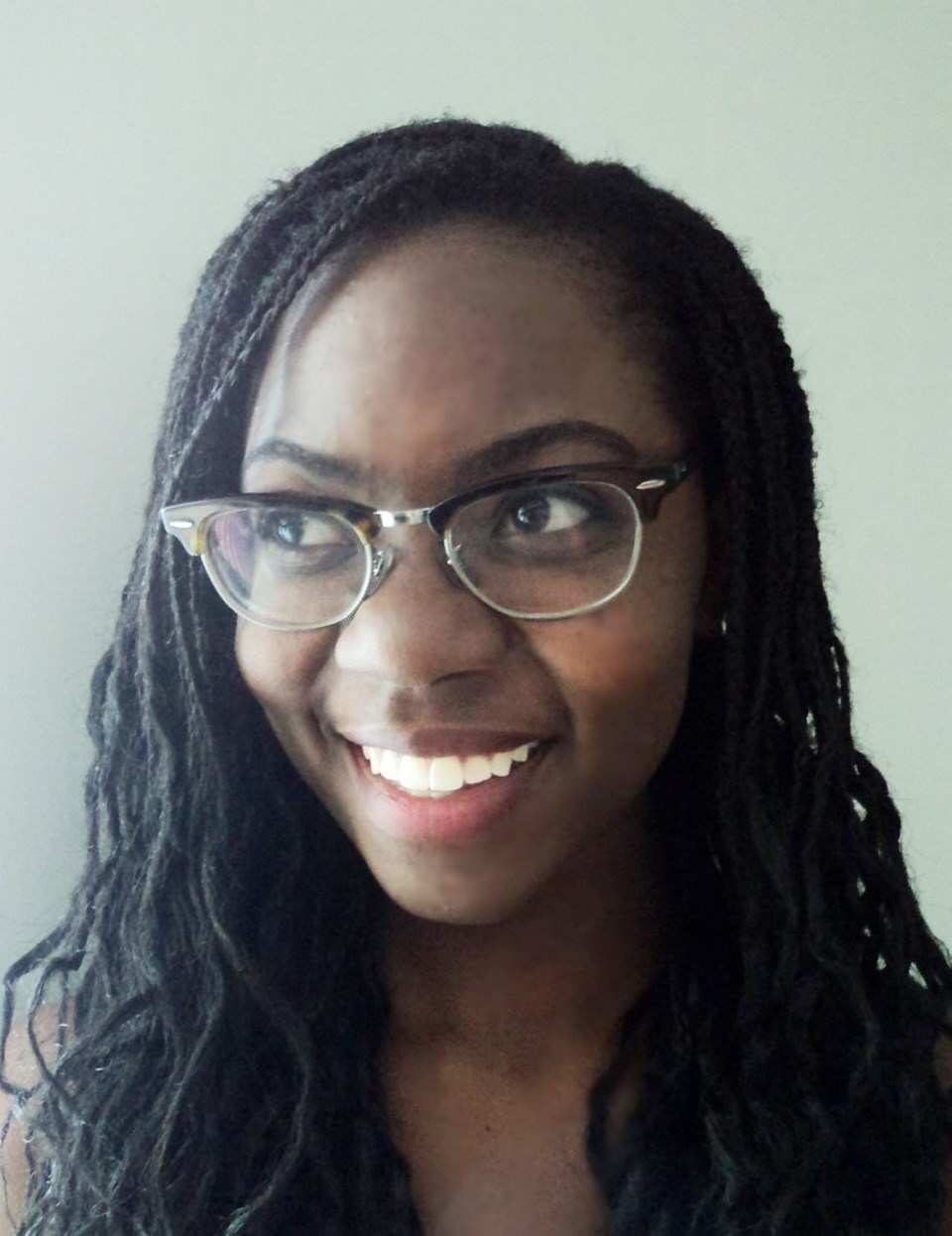What: Victoria Spoken Word Festival
Where: Intrepid Theatre Club, Metro Studio, Victoria Event Centre
When: Feb. 23 to March 1
Tickets: $12, $15, passes $45 at ticketrocket.org/vswf2015/
Information: victoriaspokenwordfestival.com
At the Victoria Spoken Word Festival, award-winning poet Chimwemwe Undi will recite a poem about the Trayvon Martin shooting.
Undi says as a young black Canadian, she was particularly affected by the teenager’s death in Florida in 2012. The shooter, Neighbourhood Watch leader George Zimmerman, was acquitted in 2013.
She wrote the Trayvon Martin poem, titled 2/26, before the 2014 killing of Michael Brown and subsequent protests in Ferguson, Missouri.
“To write that poem and see it only become more relevant while I was still performing, it was very upsetting and very difficult,” she said this week from her Winnipeg hometown.
“A lot of my work is still me, being a young black person in North America, going through school and learning about institutionalized racism and everything.”
Twelve spoken-word poets, including Undi, will attend the Victoria Spoken Word Festival, which begins Monday. Most of the poets have won national titles for their work — 20-year-old Undi is a two-time Winnipeg Youth Slam champion. One highlight is the Festival Finale on Feb. 28, in which an “all-star” ensemble of poets will perform a new show written in just one day. (For the full schedule, see victoriaspokenwordfestival.com.)
Undi is a rising talent in Canada’s spoken-word poetry scene. As well as attracting acclaim for her poetry, she recently made headlines for her ground-breaking study of aboriginal rap in Manitoba and Saskatchewan.
Undi, who is completing a linguistics degree at the University of Manitoba, spent six months analyzing recordings of such hip-hop artists as Eekwol, Team Rezofficial, Winnipeg’s Most and Wab Kinew. The aim of her ongoing study is to see how Canadian aboriginal rappers define themselves in the context of the global “hip-hop nation.”
She found the aboriginal hip-hop artists she studied tend to mix Afro-American colloquialisms with their own vernacular. There was also “code switching,” that is, crossing over from English into aboriginal languages.
“There’s a rapper called Eekwol from Saskatoon who has several verses that are entirely in Cree,” Undi said.
The issue of racism is frequently raised. One hip-hop song is about Winnipeg’s Matthew Dumas, who was shot to death in 2005 by police. His family subsequently filed a wrongful-death lawsuit.
“There was also a song about how the experience of aboriginal young men and women is very similar to the experience of black men in the United States, how they are very much targeted by authorities, and Winnipeg prisons are filled with a disproportionate amount of aboriginal people,” Undi said.
She has pursued her study under the mentorship of U of M linguistics professor Veronica Loureiro-Rodriguez. Undi, who aims to become a linguistics professor herself, did her research though a program called the Undergraduate Research Awards.
Born in Winnipeg, Undi was raised in South Africa until the age of 12. Her parents are African. Her mother is Zambian; her father’s from Zimbabwe.
Although she grew up in a “fairly privileged” middle-class family, Undi says her own life has been affected by racial oppression. For instance, her parents, determined to create the best future for their children, made the decision early on to speak to their children only in English.
“Linguistically, that is very interesting to me and very sad. The fact that they went through an educational system that devalued the language my grandparents spoke with my parents, to the point they felt there was no value in passing the language down further,” Undi said.
She aims to have her aboriginal hip-hop study ready for publication by the end of the summer. It appears to be ground-breaking — at least as far as Undi knows.
“It’s strange to me, because the study of global hip-hop through linguistics is a pretty popular field. But there hasn’t been much work done on Canadian aboriginal rap.”
